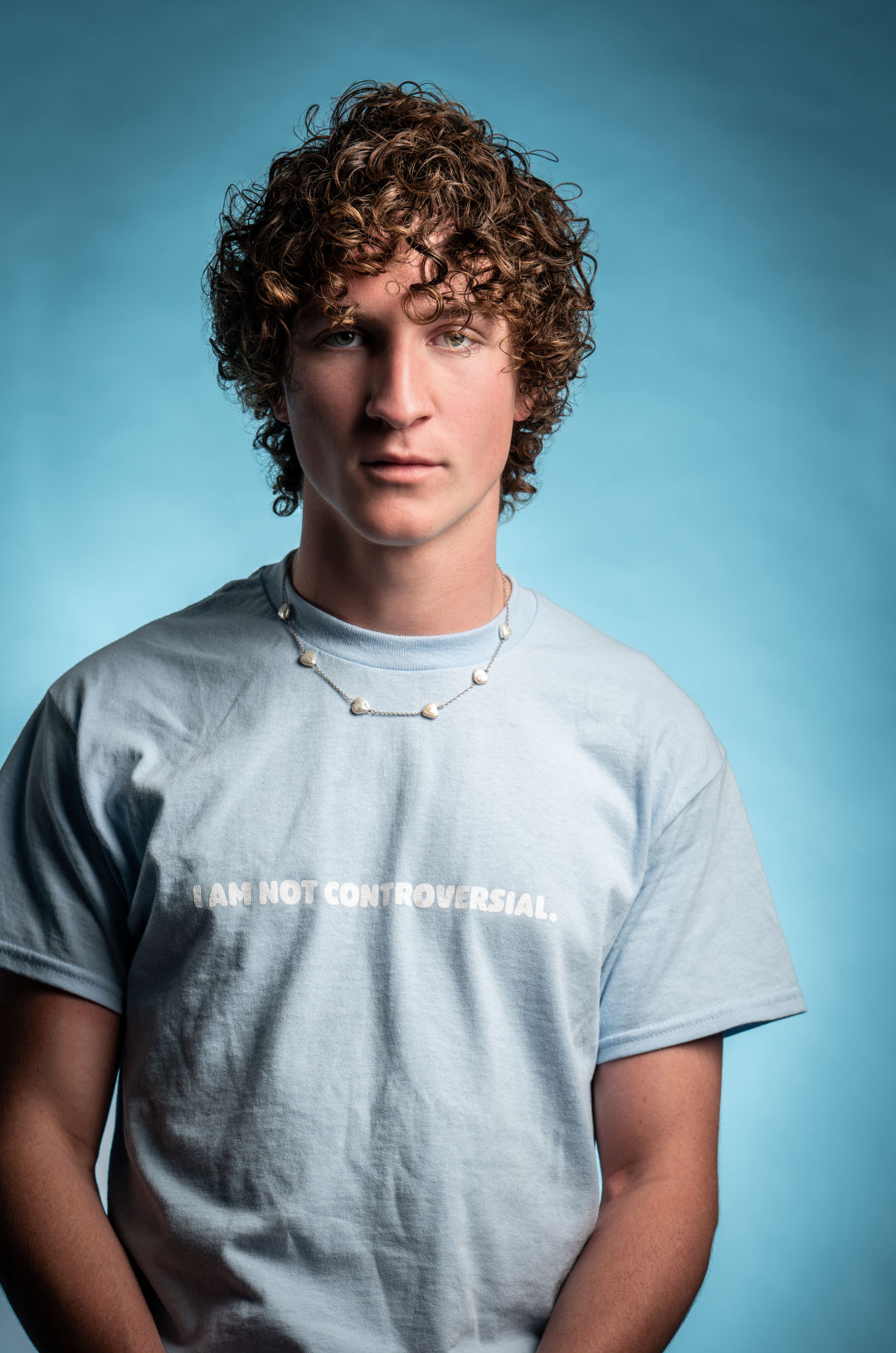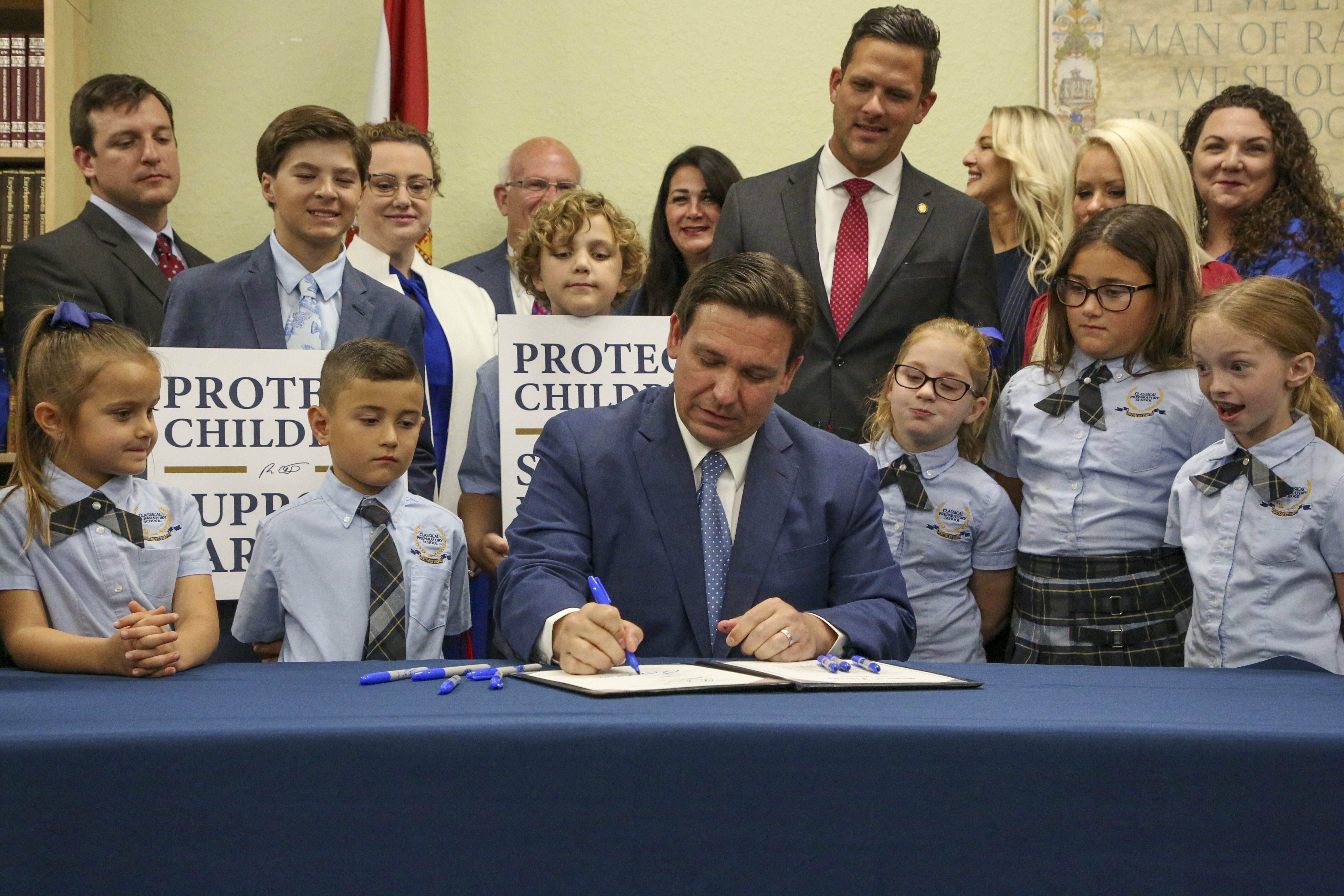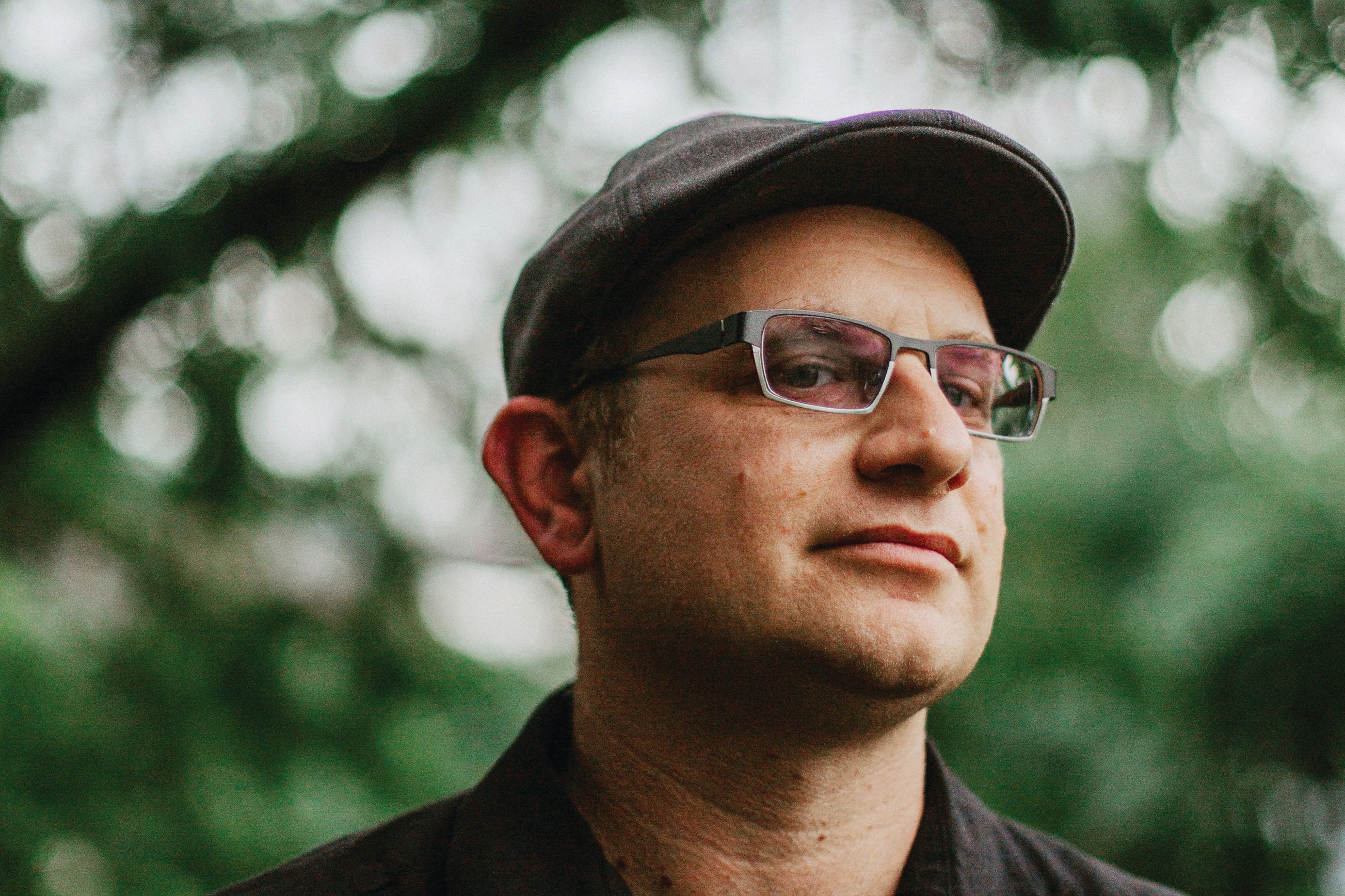Pine View Graduate Zander Moricz Challenged His School and His State Over LGBTQ Rights

Zander Moricz
Image: Barbara Banks
Students at Pine View School, which is routinely ranked among the country’s best educational institutions, are known for being fixated on goals and working hard to achieve them. But even in such a focused, disciplined atmosphere, Zander Moricz has always stood out.
As early as eighth grade, he was lasered in on what the future held. Middle school social studies teacher Liz Ballard, the school’s former gym coach, remembers a P.E. game of street hockey that turned into a discussion of Moricz’s plans for the future.
“I am going to get elected class president for the next four years and I’m going to go to an Ivy League college,” he told her. “That’s what I’m doing.”
At the time, Ballard was impressed, and a bit taken aback.
“He knew then exactly what he wanted to do, and he knew the steps that he needed to take to do that,” she says.
Fast forward a few years, and Moricz has done all those things—and then some. He served as Pine View’s class president for four years before graduating this spring, and was the first openly gay person to serve in the role. During his sophomore year, he started the Social Equity and Education Initiative, an organization dedicated to mobilizing young activists and energizing voters. At the end of March, he was accepted to Harvard University, where he plans to study government.
He has also emerged as a public figure. When Florida legislators proposed and then passed what activists dubbed the “Don’t Say Gay” bill, which effectively bans classroom discussions of gender identity and sexual orientation, he co-hosted a well-attended rally near Sarasota’s bayfront. After the Florida House and a Senate committee passed the legislation, Moricz organized a walkout at Pine View as part of a statewide effort. Then, on the heels of Gov. Ron DeSantis signing the bill into law, he became a plaintiff in a federal lawsuit contesting the legislation as discriminatory.
For Moricz, the legislation hit close to home. The first person he came out to was Ballard. The teacher recalls her response: “All right. That’s awesome. Are you OK? Have you told your family yet?” At the time, his answer was no.
“I am not unique in that the first person I came out to was a teacher,” says Moricz. “Coming out at home first is tremendously scary. You’re living with these people your whole lives, and they think they know everything about you. But there’s an entire aspect you have not shared or have not known about yourself.”
Moricz saw school as a support system, a community where he could feel comfortable and safe to be himself. That gave him confidence to live his identity in a public way.
With his mop of curly hair and curated style, Moricz is a particular type of young person for this moment—a charismatic yet careful activist who doles out his words in measured takes. He’s not prone to the exuberant outbursts that youth sometimes brings. Instead, he deliberates over each answer, as if he can imagine it appearing in a constellation of future articles.
Ballard sees this quality as a shrewdness in Moricz, an ability to filter each opportunity in life through the lens of, “Will this help me or will this hurt me?”
“Being so single-minded and knowing his goals has really helped him with extraneous stuff,” says Ballard. “If it’s in the hurt category, he won’t do it, and if it’s in the help category, he’ll do it.”
Moricz’s call to activism came shortly after his first day in sixth grade at Pine View. He had transferred to Sarasota County’s gifted school after spending his early years in a public school in Manatee County. There, a chunk of his class did not speak English, and it was not uncommon for different classes to have to share the same books. When he got to Pine View, it was like a different world. Nearly every classroom boasted interactive whiteboards.
“The problems in our education system peeled back the layers of all the problems in our political system for me,” says Moricz. “I remember the single moment that I determined that politics was going to be what I needed to spend my life on. It was when I realized the majority of public school education was funded by property taxation. I lost my mind over that. That seems so backwards.”
It’s jarring to hear a high schooler connecting property taxes and public education—not because they aren’t important, but because they’re not exactly topics one might call politically sexy. But the dichotomy between Moricz’s experiences in Manatee County and at Pine View made him realize something. How could education ever be equitable when property values determine the quality of the education a student receives?
Moricz’s soon-to-be nonprofit, the Social Equity and Education Initiative, was founded in part to vet local candidates to determine whether they would make a quality education more accessible for all. But Moricz and other leaders also want to get young people involved on the front end—by voting. They are in the process of creating a “peer-to-peer voter registration system” that functions through Instagram. Organizers will offer a selection of times when they are available—think of them like office hours—and then use those time blocks to help young people register to vote.
“With people their own age, and on a platform they are comfortable with, youth are more likely to complete what may seem like a daunting process,” says Moricz.
It’s hard to pinpoint where Moricz’s almost preternatural determination comes from, even for him. He sees it as coming from a place of optimism—a belief that government can and should serve the people. Right now, he says, it isn’t doing that.
“There’s just so much potential in this country,” he says. “There’s too much potential to ignore what’s stopping us from realizing it.”
As an activist, some days are easier than others. At the beginning of May, he learned from Pine View’s principal that his graduation speech would be cut off if he mentioned his activism or his role as a plaintiff in the lawsuit against the “Don’t Say Gay” bill. Pine View’s decision brought Moricz national media attention, including profiles in Rolling Stone and on NBC.
“I am the first openly gay class president in my school’s history—this censorship seems to show that they want me to be the last,” he posted in a May Twitter thread that received more than 38,000 retweets. “This threat is not the first that I have received from administration about my queer rights.”
I am the first openly-gay Class President in my school’s history–this censorship seems to show that they want me to be the last. This threat is not the first that I have received from administration about my queer rights. (3/8)
— zander moricz (@zandermoricz) May 9, 2022
In February, before he became a national figure, Moricz spoke at a rally near the John Ringling Bridge. After his talk, a flood of people swarmed around him, a throng that included Tom Kirdahy, an award-winning Broadway producer, who was impressed by Moricz’s poise. Kirdahy asked the high school senior whether he’d heard of United States v. Windsor, the Supreme Court case that ultimately led to the striking down of the Defense of Marriage Act. Kirdahy told Moricz that the lawyer who had argued that case, Roberta Kaplan, would soon be filing a federal lawsuit against Florida’s bill and might want to speak with him.
Moricz felt nervous before his eventual conversation with the legal team. When Kaplan said Moricz’s name during their first meeting, Moricz says that he “yelped.” But he soon saw he had no reason to be so apprehensive.
“These people were genuine and serious and were asking my perspective on policy opinions,” he says. “My narrative really started developing for the complaint.”
The team at Kaplan Hecker & Fink LLP, a New York firm, knew they would challenge the legislation almost as soon as news reports of the state law appeared. Not only does the bill have a vaguely worded ban on “classroom instruction on sexual orientation or gender identity” that is not “age-appropriate or developmentally appropriate,” but it also allows parents to lodge complaints and bring legal action against any school district that they feel is not following the spirit of the law. That opens up a can of worms, lawyers say.
“The law is vague and it is also discriminatory, and its vagueness only amplifies the discriminatory effect that we already see occurring throughout the state,” says Joshua Matz, a partner at Kaplan Hecker & Fink.
Kaplan knew putting faces to the issue could go a long way toward winning the case. It had worked for her in Windsor. So the team assembled a collection of real-life plaintiffs, including Moricz, a transgender fifth-grader and a gay couple with two first-grade children. The case is still in the early stages, with no official timetable for a hearing yet set.
Moricz had to weigh some very real negatives when deciding whether to be a named plaintiff. His interviews and public appearances had already been met with an onslaught of hateful messages on Twitter. Even now, he is cautious about going out alone in public to certain places, like the grocery store.
As he goes off to Harvard this fall, it may be tempting to him to put that hatred and homophobia in the rearview mirror. But that’s not how Moricz sees it.
“I feel like I need to come back,” he says. “It would feel disingenuous to do all of this advocacy work and just leave and say, ‘It’s not my problem.’ We need to be thinking critically about the state we’re leaving behind for the next generation.”



